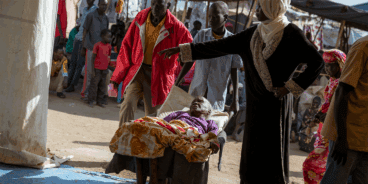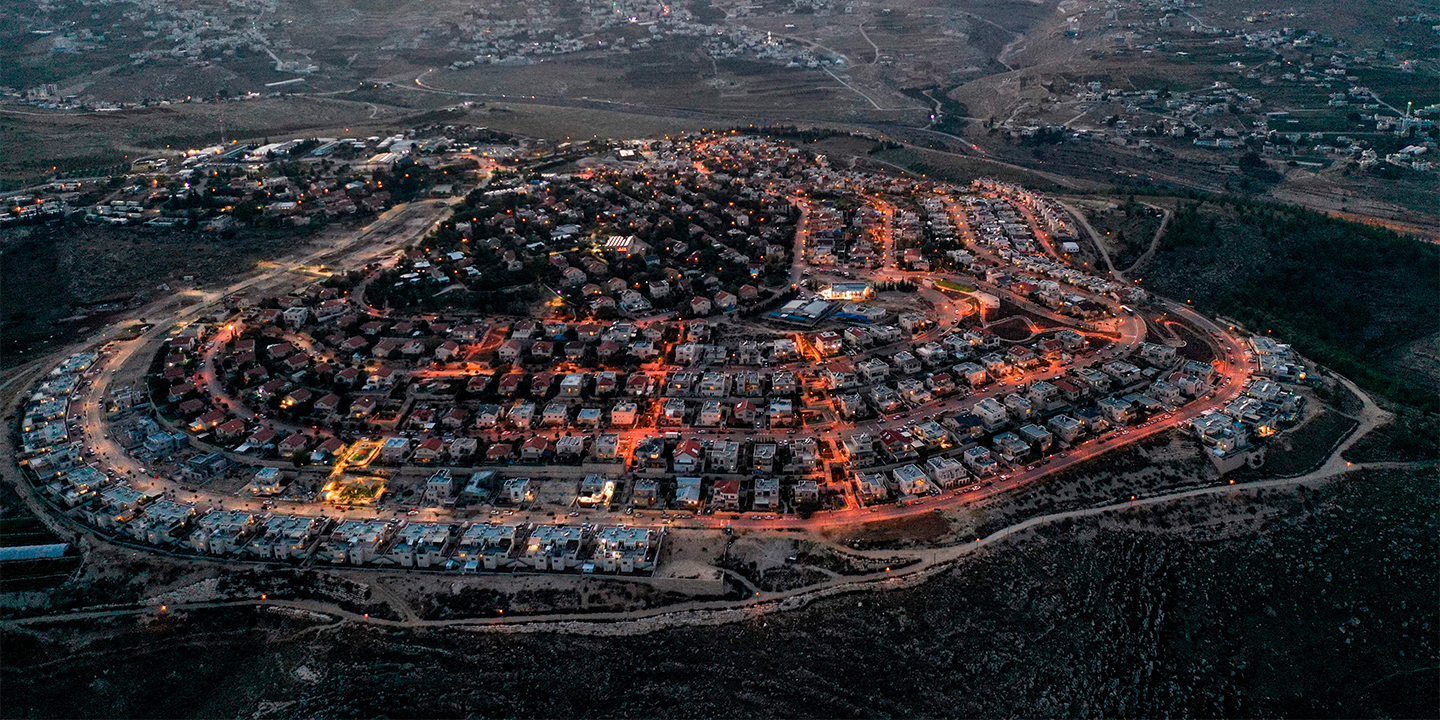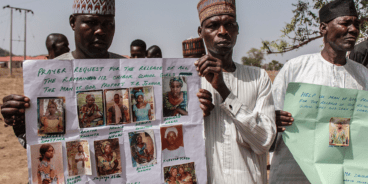

Atrocity Alert No. 404: Israel and the Occupied Palestinian Territory, El Salvador and North Korea
Atrocity Alert is a weekly publication by the Global Centre for the Responsibility to Protect highlighting situations where populations are at risk of, or are enduring, mass atrocity crimes.
ICJ DETERMINES ISRAEL’S OCCUPATION OF PALESTINE IS UNLAWFUL
Israel’s continued presence in the Occupied Palestinian Territory (OPT) is unlawful, according to an advisory opinion by the International Court of Justice (ICJ) issued on 19 July. The advisory opinion, prompted by a December 2022 request by the UN General Assembly, assesses the “legal consequences arising from the policies and practices of Israel in the Occupied Palestinian Territory, including East Jerusalem.”
Palestinian territory has been occupied by Israel since 1967 and characterized by the perpetual expansion of Israeli settlements. Various UN officials and investigative mechanisms have asserted that Israel’s permanent occupation of Palestinian territory has no legal validity and has resulted in de facto annexation. With its latest opinion, the ICJ affirmed that Israeli settlements in the West Bank and East Jerusalem have been established and maintained in violation of international law. The Israeli government has also established a two-tiered legal and political system that provides comprehensive rights for Jewish Israeli settlers while imposing military rule and control on Palestinians without any basic protections or rights under international law. The Court found that these, and other restrictions, constitute systemic discrimination and violate the prohibition on racial segregation and apartheid under International Human Rights Law.
The ICJ also determined that settler violence against Palestinians – which has been pervasive for decades and increasing dramatically in recent years – and Israel’s failure to effectively prevent or to punish such violence, as well as its own excessive use of force, have contributed to the creation and maintenance of a coercive environment against Palestinians in the OPT.
The Court concluded that Israel is obligated to end its unlawful presence in the OPT as rapidly as possible; immediately cease new settlement activities; evacuate all settlers from the OPT; repeal all legislation and measures creating or maintaining the unlawful situation, including those that discriminate against Palestinians; and make reparation for the damage caused to the natural or legal persons concerned in the OPT.
The ICJ’s advisory opinion comes at a time when Israel has dramatically escalated its indiscriminate and disproportionate bombardments and ground operations in Gaza. Since 12 July over 503 Palestinians have been killed, many in a series of mass casualty incidents, while Israeli strikes have hit refugee camps, UN-run schools and Al Mawasi in Khan Younis, an area to which the Israeli military previously directed Palestinians to flee for safety and shelter.
Israel must cease settlement expansions, reverse the annexation of Palestinian territory and ensure accountability for settler violence. All UN member states must collectively seize the responsibilities and obligations underlined by the ICJ and take resolute action to ensure Israel ends its unlawful occupation, including by advocating for the universal application of the rule of law and Palestinians’ right to self-determination. An immediate ceasefire in Gaza must be urgently reached, all attacks against civilians must be halted and UN Security Council Resolution 2735 should be implemented without delay.
SYSTEMATIC HUMAN RIGHTS VIOLATIONS AND ABUSES CONTINUE IN EL SALVADOR
On 10 July human rights organization Cristosal warned that more than 260 individuals have died in state custody in El Salvador under the protracted state of emergency that President Nayib Bukele has imposed since March 2022. According to Cristosal, between March 2022 and April 2024 “people have died in El Salvador’s prisons and jails because of torture, a lack of food, unhealthy conditions, an inhuman lack of attention and cruel, inhuman and degrading treatment.” Cristosal stressed that these conditions are part of a “deliberate policy of not protecting the rights of incarcerated people.”
Under the state of emergency, state agents have systematically arrested individuals allegedly associated with criminal gangs. An estimated 80,000 individuals – many of whom are young men from low-income neighborhoods – have been arrested, often without proof of involvement in gang activity. Many of the recorded arbitrary detentions are also often accompanied by short-term enforced disappearances. The government noted in August 2023 that more than 7,000 individuals had to be released due to a lack of evidence.
Human Rights Watch has warned that “indiscriminate sweeps” have resulted in the arrest of approximately 3,000 children during 2022 and 2023, of whom 841 remained in detention as of the latest available data from January 2024. According to Human Rights Watch, at least 579 children have been sentenced to lengthy prison sentences, ranging from 2-12 years, and often on broad charges of “unlawful association” and “the basis of uncorroborated police testimony.” Both Human Rights Watch and Cristosal have reported that government agents regularly subject incarcerated minors to ill-treatment and inhumane conditions in detention.
Meanwhile, widespread violations of due process rights, reported forced confessions and mass trials authorized by the country’s Legislative Assembly leave detained individuals at the mercy of state institutions effectively controlled by the president. President Bukele continues to justify these systematic human rights violations and has asserted that these policies have transformed “the most insecure country in the world into the safest country in the entire Western Hemisphere” by pointing to a significant reduction in homicide numbers and gang violence. As a result, the international community – including many regional governments keen to reduce urban violence in their own countries – has remained silent despite rising atrocity risks in El Salvador.
Elisabeth Pramendorfer, Latin America Expert at the Global Centre for the Responsibility to Protect, warned, “The lack of concerted and coordinated international pressure – including from countries in the Americas – leaves populations in El Salvador at risk of crimes against humanity. For over two years, we have urged UN member states to step up and increase pressure on the Bukele administration to end flagrant human rights violations, including through a combination of confidential, quiet diplomacy and clear and decisive public condemnation of ongoing state-led repression. The time to act is now.”
NEW REPORTING ON FORCED LABOR IN AND OUTSIDE OF NORTH KOREA
On 16 July the Office of the UN High Commissioner for Human Rights (OHCHR) in Seoul published a new report on forced labor in the Democratic People’s Republic of Korea (DPRK). The report concluded that forced labor is institutionalized in the DPRK through the country’s prisons system, schools and youth organizations, compulsory state-allocated employment, military conscription, Shock Brigade deployments, inminban or neighborhood watch units, Women’s Unions and a system of overseas labor. Through the report, OHCHR affirms that forced labor by the DPRK government may constitute the crime against humanity of enslavement.
Although the report expressed concern about the DPRK’s reliance on its coercive and exploitative campaign of forced labor to produce goods, public works and foreign currency revenue, it stopped short of recognizing how the widespread use of forced labor inside and outside of North Korea supports the increasing militarization of the state and its illicit nuclear weapons and ballistic missile development programs.
The correlation between human rights abuses in North Korea, including forced labor, and the country’s weapons development programs has been increasingly recognized as a serious concern. During last month’s UN Security Council open debate on the human rights situation in the DPRK, several states voiced concern about ongoing human rights violations, including forced labor, and the implications for international peace and security. During the meeting, the UN Special Rapporteur on the situation of human rights in the DPRK, Elizabeth Salmón, asserted that the government’s continued prioritization of its military and weapons development programs disproportionately impacts those most vulnerable, particularly women and children, and that exploitation of labor has become rampant due to financing militarization, resulting in human rights protection and promotion being overlooked. Special Rapporteur Salmón stressed, “International law is clear: States have the primary duty to protect and promote the human rights of all within their jurisdiction. In the face of international crimes, however, the unwillingness or inability of the DPRK to fulfil its duty must trigger the obligation of other States to act.”
It is essential that the international community balance the legitimate pursuit of denuclearization and demilitarization on the Korean Peninsula with the imperative to uphold the rights of the North Korean people. Ahead of the upcoming 79th session of the UN General Assembly, member states should explore all available options to enhance the international community’s ability to holistically respond to threats to international peace and security and the ongoing human rights crises in the DPRK. This includes incorporating in the annual resolution on the DPRK a request for the UN Secretary-General to study the nexus between human rights abuses in North Korea and its weapons development programs.
Related Content


Atrocity Alert No. 461: Israel and the Occupied Palestinian Territory, Global Landmine Report and Ethiopia
